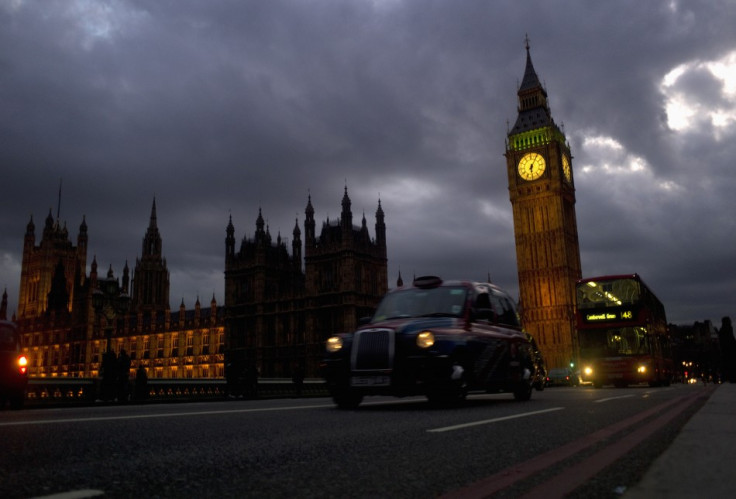Election 2015: These are the party manifesto giveaways, gimmicks and gambles

It's going to be a very close election when Britain's voters take to the polling booths on 7 May. Polls suggest it's neck-and-neck between the two biggest parties, Labour and the Conservatives, while small parties such as Ukip and the Greens have seen a surge in support over recent months.
So those parties vying for power in Westminster have unveiled a number of attention grabbing giveaways - bribes, a cynic may even say - as well as populist gimmicks and calculated gambles in the final few days of campaigning. Here are some of the notable pledges.
Conservative: Give it away, give it away, give it away now.
The Tories want to revive the Thatcherite ideal of a democracy based on home-ownership. And they want to protect the tax-cutting ideal that you keep much of what you earn. Or, indeed, inherit. So they're doing that with a number of giveaways to show voters that a Conservative government would make you better off.
- Give 1.3 million housing association tenants in England the right to buy
- Increase the tax-free personal allowance to £12,500
- Increase the 40p Income Tax threshold to £50,000
- Keep commuter rail fares frozen in real terms for the whole of the next parliament
- Raising the effective Inheritance Tax threshold for married couples and civil partners to £1m
- Roll out universal broadband and better mobile phone connections
- Support three million new apprenticeships
- Keep our major national museums and galleries free to enter
- Extend the Help to Buy Equity Loan scheme to 2020 and subsidise first-time buyer deposit savers
Labour: Something new, nothing borrowed.
Having been hammered for the past five years by their opponents for leaving behind a huge deficit in public finances, Labour is trying to project the image of fiscal responsibility. So it's going in hard on the issue. What's more, it says there is an imbalanced recovery which benefits the richest few rather than they many. So it's targeting hard-pressed low-paid workers with incentives to vote Labour too.
- Cut the deficit every year and get the debt falling by the end of the parliament with no extra extra borrowing
- Lift National Minimum Wage to £8 by 2020
- Freeze energy bills until 2017
- Ban 'exploitative' zero-hours contracts
- Reduce tuition fees to £6,000 a year
- Ban MPs from holding paid directorships and consultancies.
- Give 16 and 17-year-olds the vote.
- Replace the House of Lords with an elected Senate of the Nations and Regions.
- Give football fans a voice in club boardrooms.
Liberal Democrat: This time, it's personal (allowance).
Lib Dems have been in a slightly awkward coalition with the Conservatives and have had disagreements with their partner on how exactly public finances should be balanced. In particular, Lib Dems want to tax the rich more to make them shoulder more of the burden. The pledge to lift the personal allowance even further, though shared with the Conservatives, was originally a Lib Dem plan.
- Eliminate the deficit more fairly - half in spending cuts, half through tax rises
- Lift the personal allowance to £12,500
- Raise £14bn from tax rises on the wealthy, as well as tax avoidance crackdowns
- Enable consumers to swap energy provider within 24 hours
- End above-inflation rail fare rises
Ukip: All things to all men.
As it tries to manage its sharp rise in popularity, Ukip has had to balance the competing political interests within its support base, from the pro-privatisation market liberals to the NHS-loving blue collar former Old Labour voters. At its heart, though, Ukip is still about one thing above all else -- quitting the European Union (EU).
- Leave the EU and tighten border controls
- Abolish inheritance tax
- A flat-rate turnover tax on big businesses
- No tax on the minimum wage
- A 12-mile limit for UK fishermen only around the coastline
Greens: The new reds?
The Green party is trying to show the public that it's about more than just environmental politics. Specifically, it's about old school socialism of the sort Labour was known for in the post-war years before the 1990s Blairite revolution within the party.
- Spend £85bn of public money on renewable electricity generation, flood defences and building insulation
- Provide 500,000 new social homes for rent
- Raise £90bn over five years from tax avoidance/evasion crackdown
- End tuition fees and cancel all student debt
- A complete ban on cages for hens and rabbits in farming
- A ban on foie gras
- A ban on fracking in the UK
The SNP, Plaid Cymru, DUP and Sinn Fein have been left out because devolution means they tend to focus policies only on their respective nations, rather than the UK as a whole.
© Copyright IBTimes 2025. All rights reserved.






















